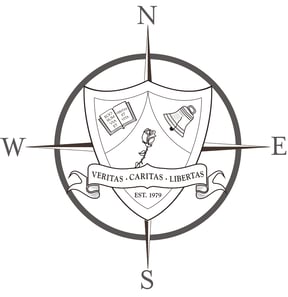Last month, I received a Christmas gift from the managing editor of The Journal of Moral Education – a pile of reprints of my article “Mentorship Programs in Schools: Bridging the Character Education Gap” following the December online publication.
I was giddy with joy. The publication of that article represents a fragment of three years of study and research – including over 200 curated references, my analysis of five major works of Aristotle along with countless contemporary studies, and my own action-research findings. The work was dog-hard and the end results are delightful. That’s true of all quality scholarship: the work is hard and the end results are deeply satisfying.
.png?width=331&height=331&name=Headline%20Post%20(2).png)
Ironically, the culmination of my long research project arrived at Montrose as all upper schoolers are zealously immersed in research challenges, from 9th and 10th graders tackling National History Day projects, to juniors designing physics experiments, to seniors immersing themselves in Capstone research – their culminating Montrose signature experience.
So why do we emphasize the hard skills of research in the upper school, and why does this work matter? Montrose scholars practice the habits of heart, mind and character to serve the common good. And they do this with the spirit of a Maverick -- one who thinks independently and is driven by a courageous and innovative spirit to build bridges in ways that ensure the dignity of each person.
- Research is hard because it taxes every academic habit and skill, from reading comprehension and synthesis to critical thinking and argumentative writing. To do good research requires discerning quality sources and assessing bias. Just as we emphasize discovery through core texts throughout our curriculum, so we emphasize using primary sources and crafting original theses. Girls don’t just create mashups of others’ discoveries; they develop their own insights to contribute to the teamwork of scholarship and to the betterment of society.
- Research challenges our character as well. We guide students to develop a research process that helps prime them to practice the virtues we highlight in our immersive character and leadership program. This process ensures intellectual carefulness and thoroughness – and prevents the dangers of plagiarism and AI-aided shortcuts. Teachers accompany each student closely in this guided research process, to ensure they focus on topics of scholarly value, use sources that avoid ideological pitfalls, and develop their theses in ways that drive their curiosity, ensure fair-mindedness, and allow for creative insights as well as humility.
- Research empowers expertise, big questions, and confidence. At the end of this research process, you will be proud of the work you’ve created and of the expertise you can share with others about your topic. You will discover more questions that leave you curious -- and some of those may lead you to discover your noble purpose.
Tenaciously working through these research projects shows our girls what real scholarship is: It’s not about reading textbooks and regurgitating lectures on tests. It’s about making discoveries and learning from others’ research.
That process of engaging work with the fullness of our God-given potential reminds us that our work to discover the truth gives glory to God and impacts others. Communicating that work requires close attention to character, to honor fully the work of other scholars as we add our small contributions along the way. Maverick researchers experience the pride of work done well that contributes to the common good.





